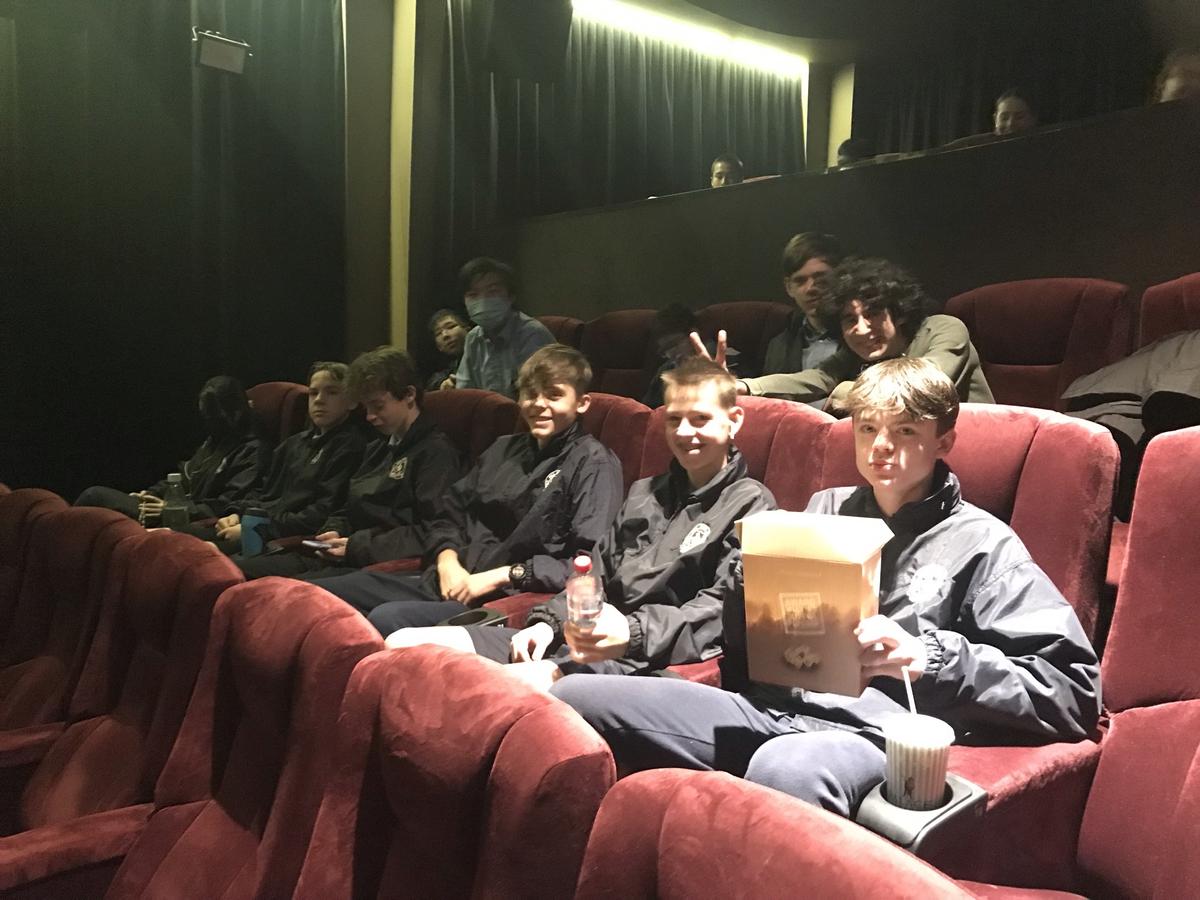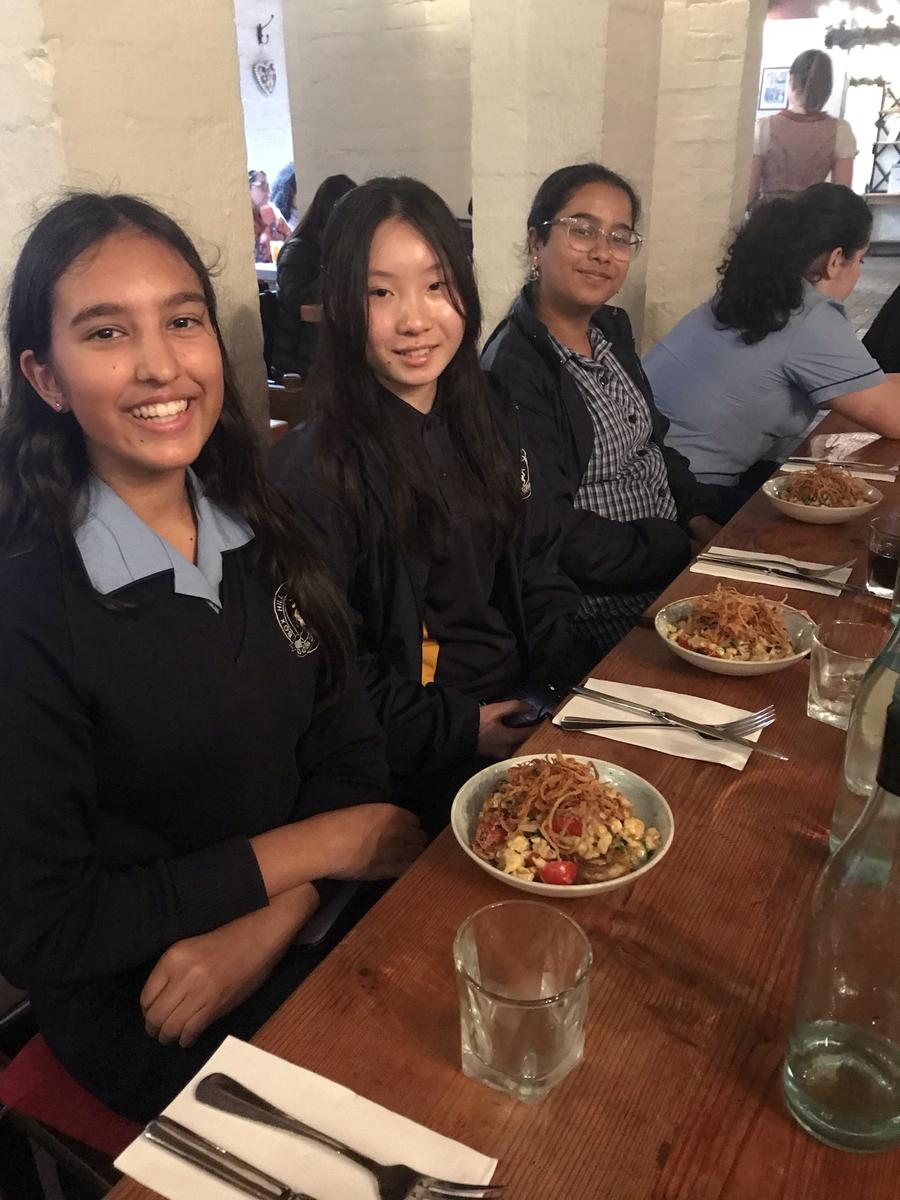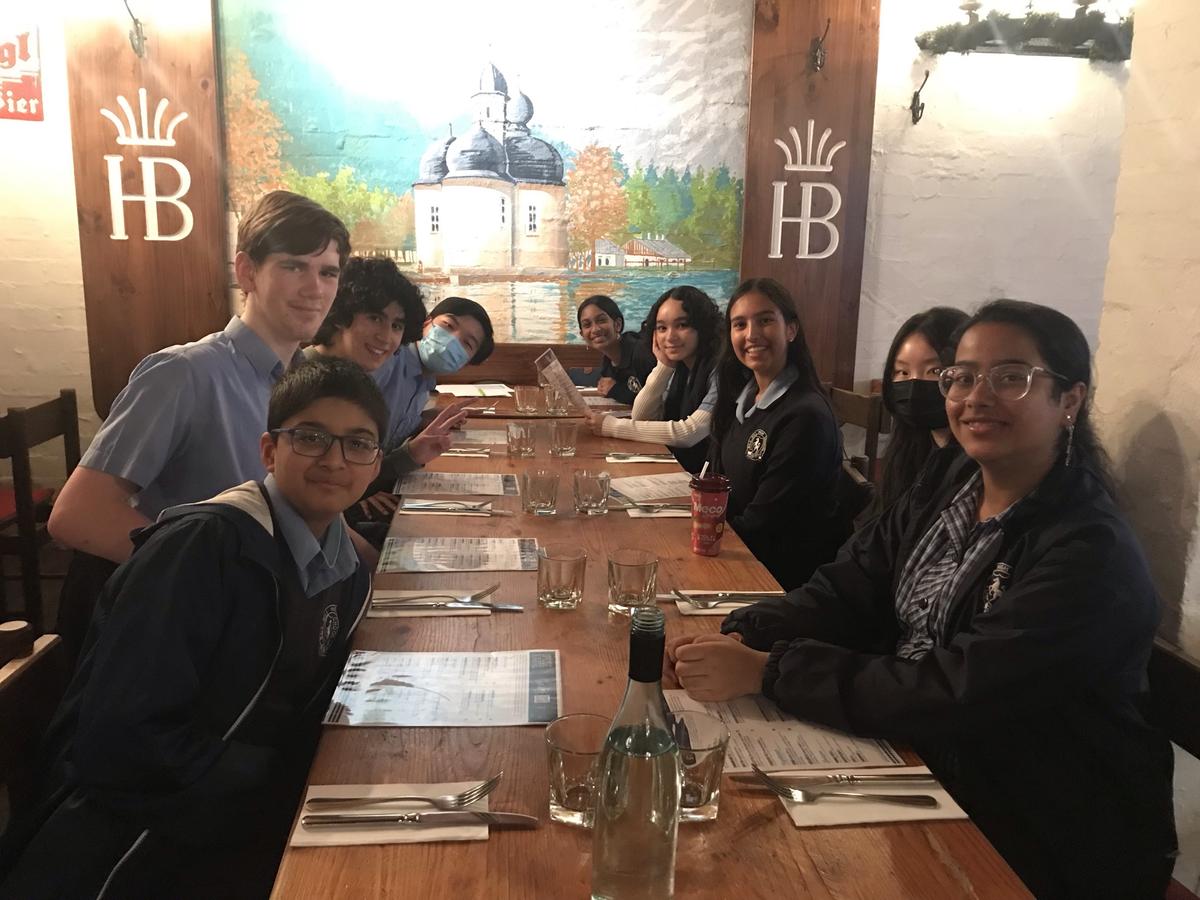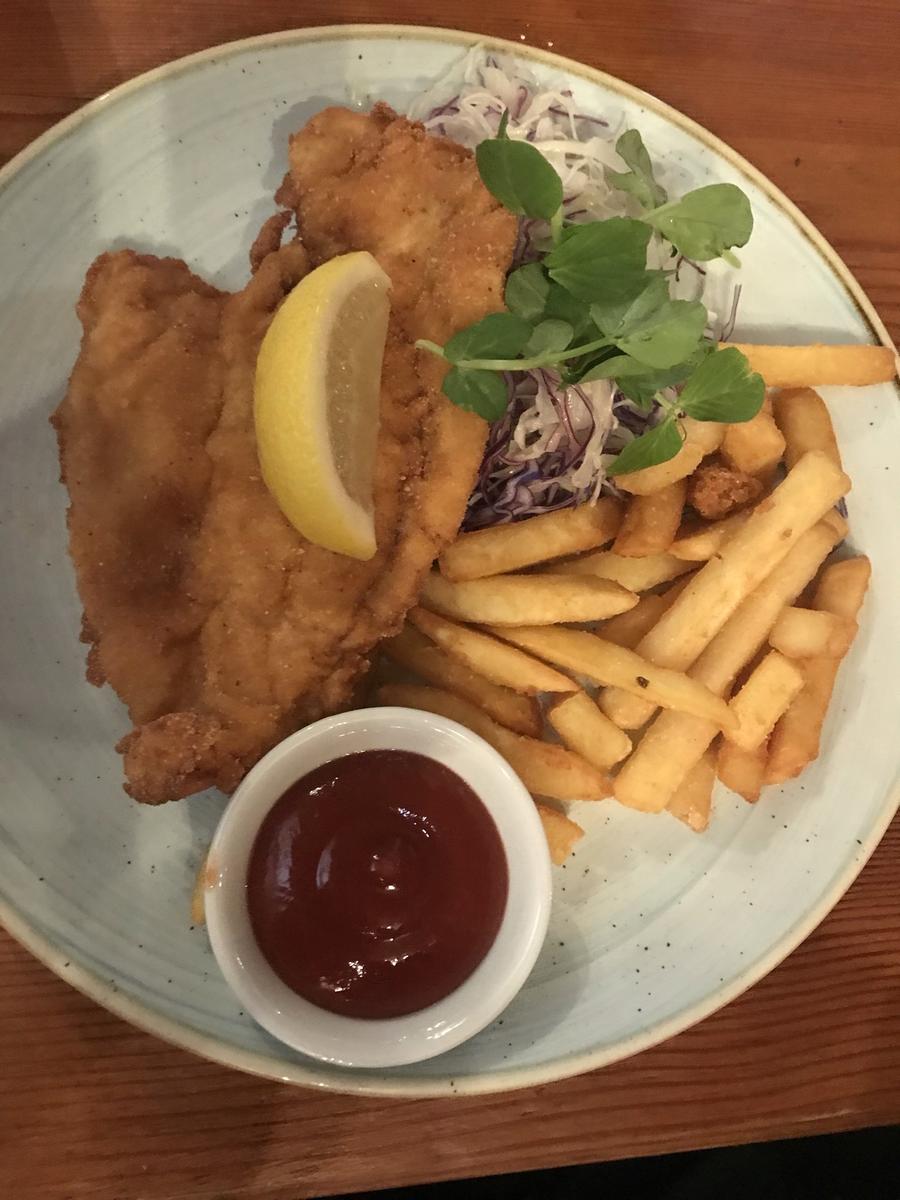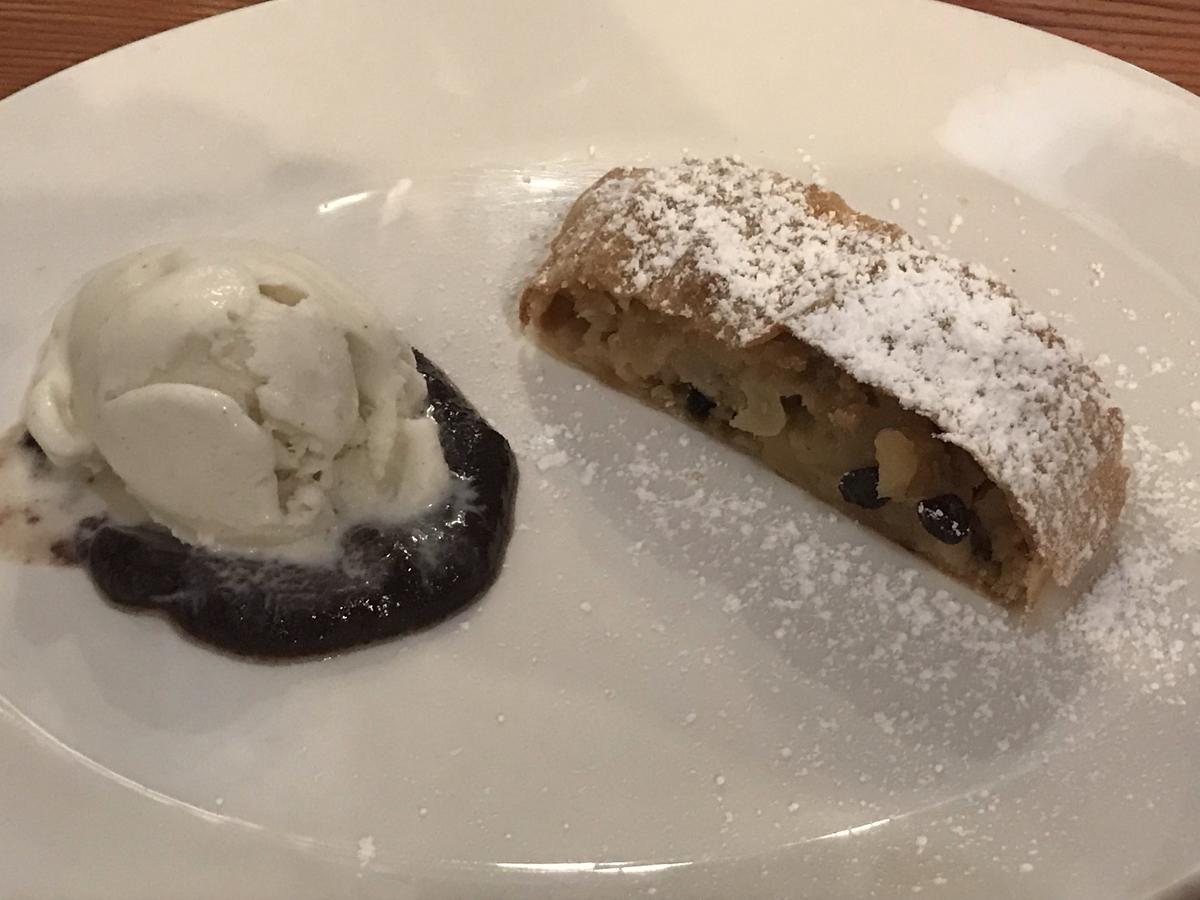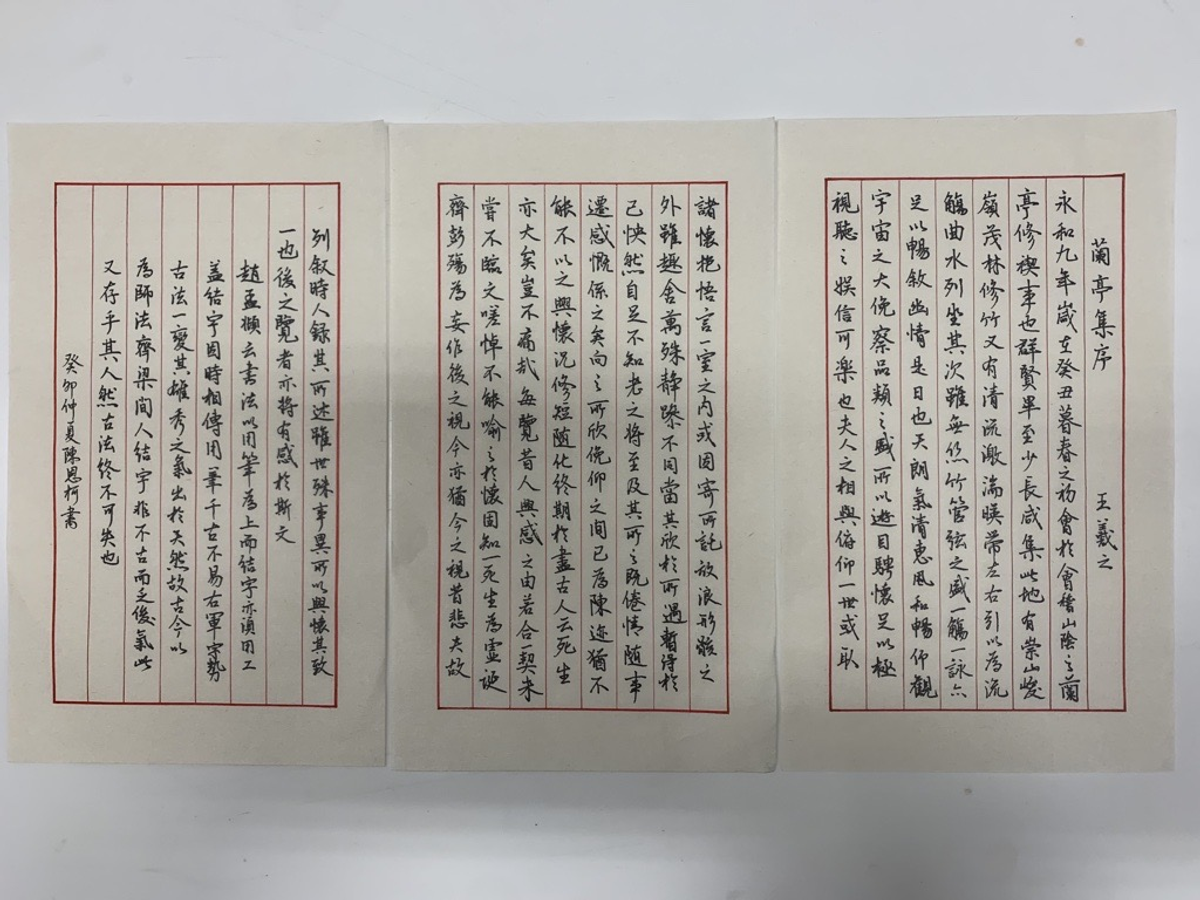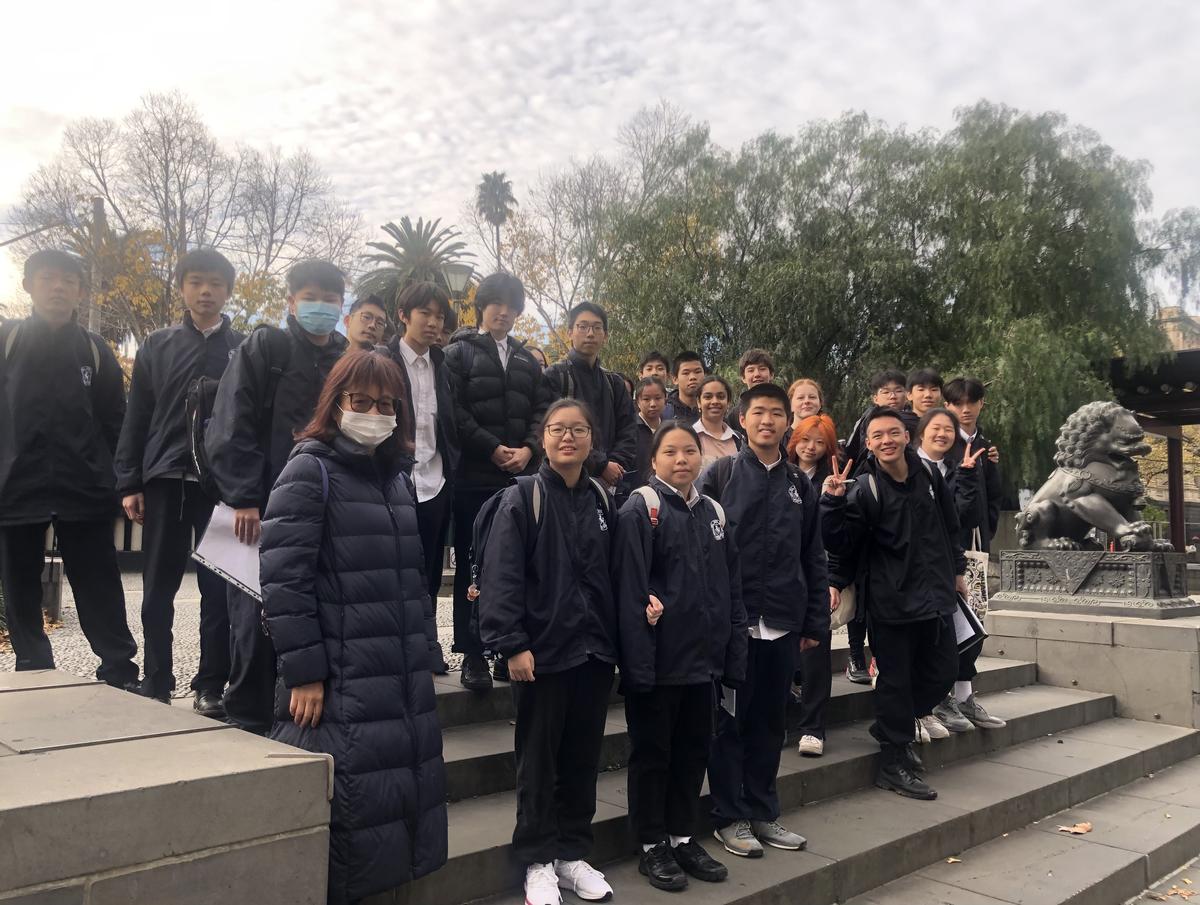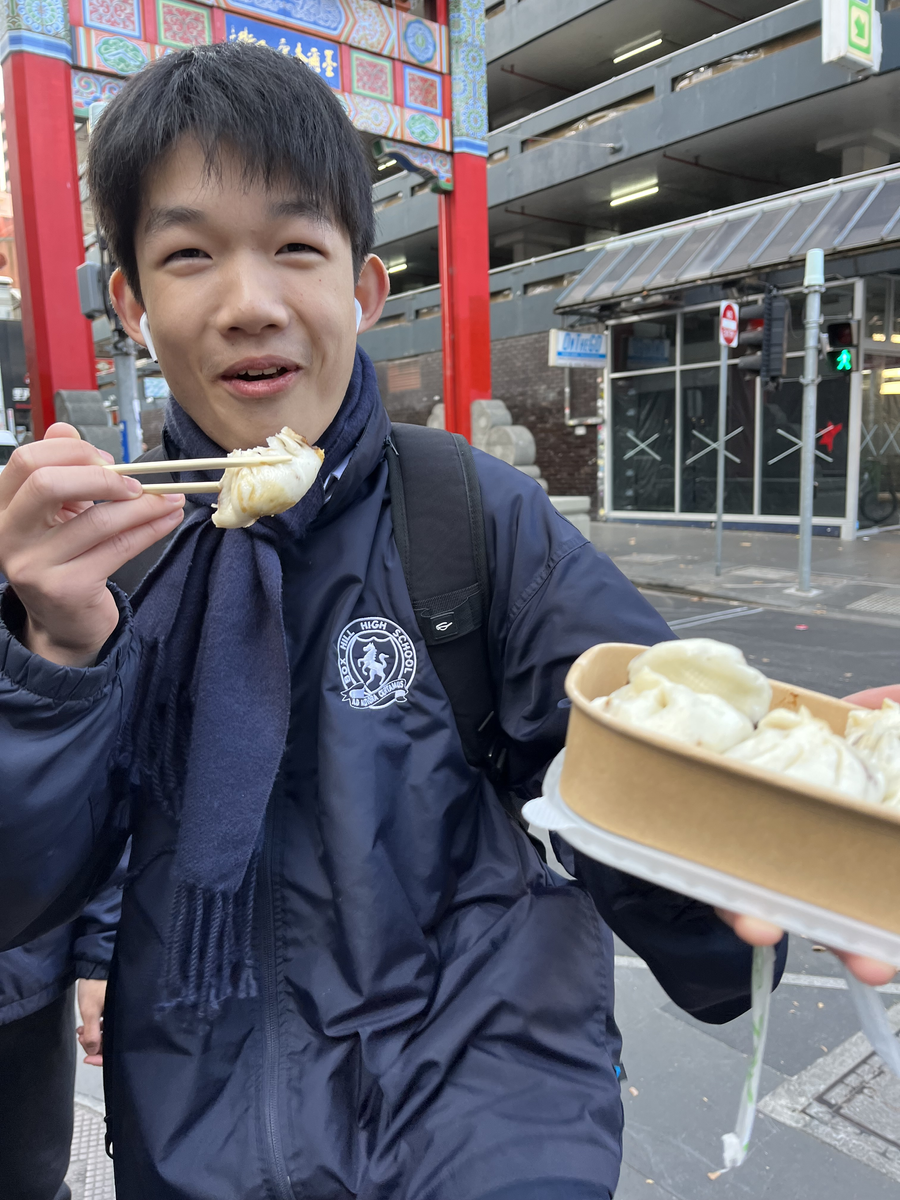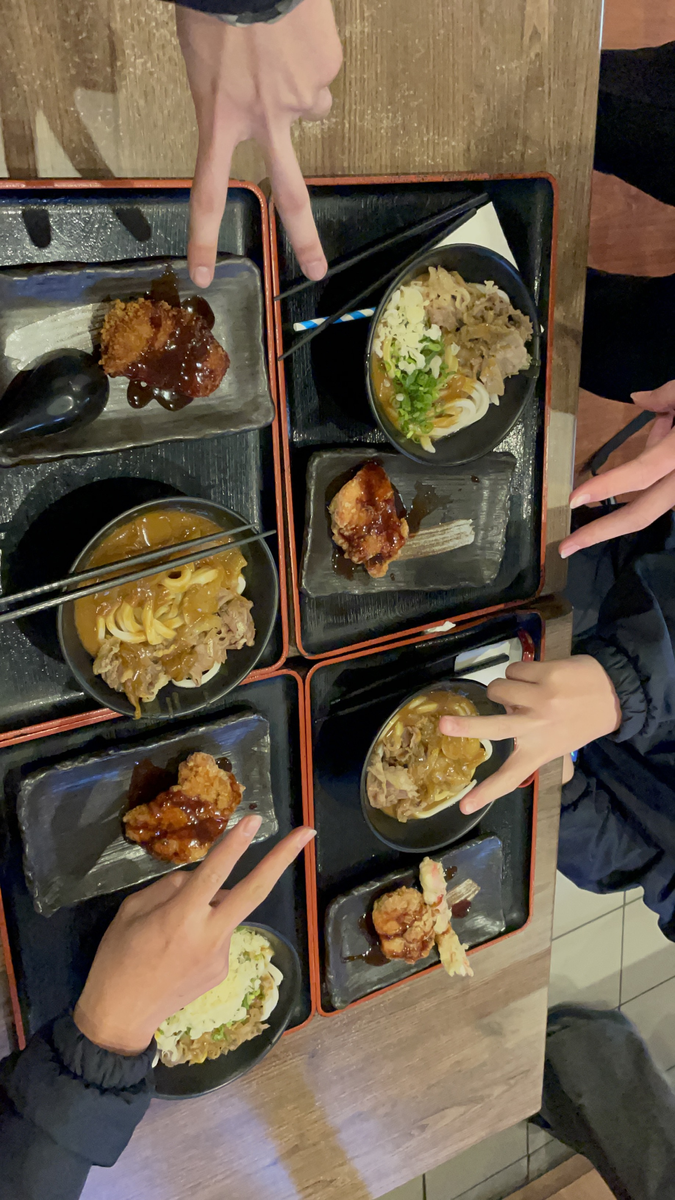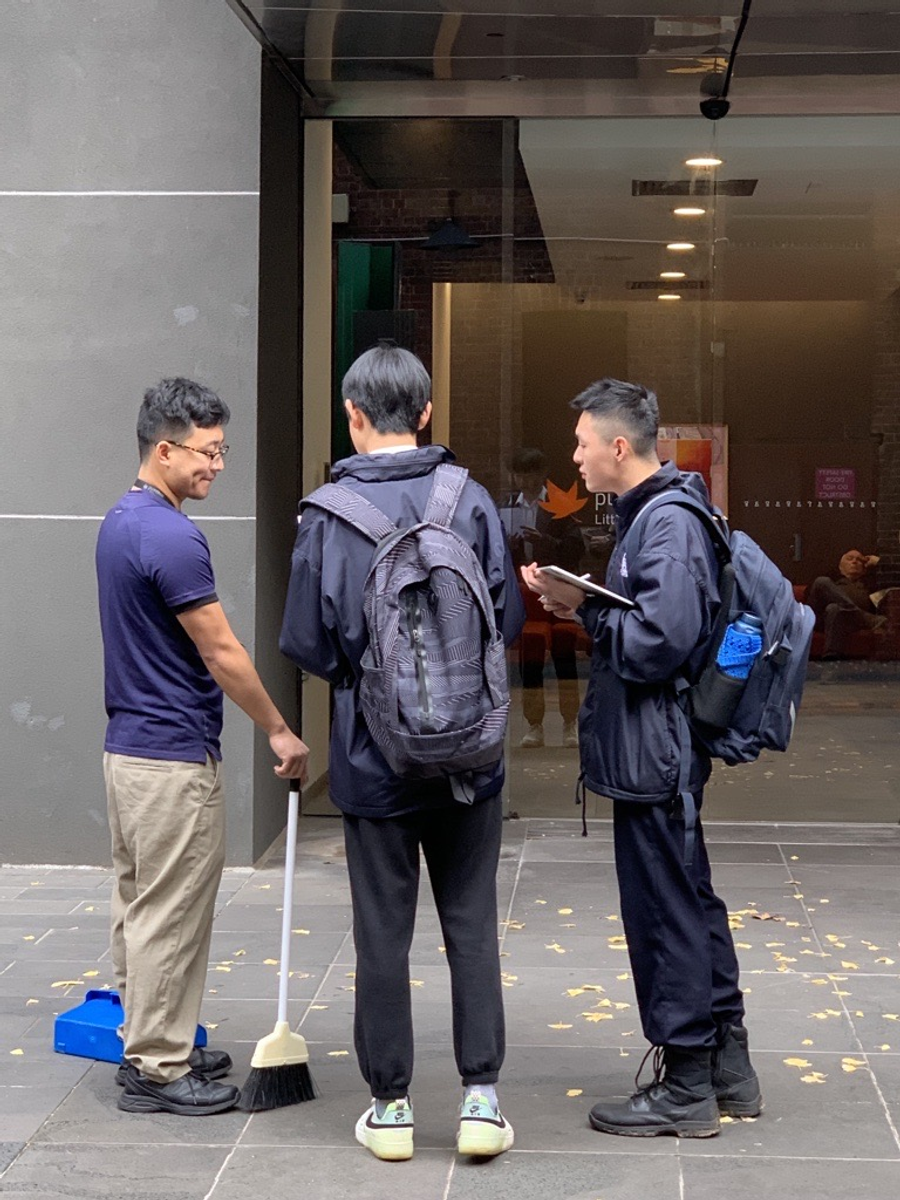Languages Domain

In this newsletter, we would like to showcase some of the exciting work that has been happening in our language classrooms.
Y7 German
In Term 2, Year 7 students recycled key vocabulary to exchange personal information in the context of describing family members. Unit 2 focused on developing students’ writing skills and writing short paragraphs to describe family and friends. The final assessment task required students to describe 5 family members in short written texts in German. Students were encouraged to choose a presentation style that best suits their skills and interests. They can create PowerPoint presentations, posters, pictures collages or even short videos describing their chosen family members. Please see Fatima Ali’s (8G) fantastic PowerPoint presentation from last year.
Y8 German
Y8 students learnt to discuss their preferences in food and drinks and to engage in shopping transactions. The final assessment task required students to perform a shopping role play, in which they assumed the role of both the customer and the shop assistant. Students were required to base their conversation on an assigned shopping list without referring to a prepared script. Please listen to this excellent example performed by Rishita R (8Z) and Nancy Y (8Z). This unit will conclude with an excursion to Queen Victoria Market at the start of Term 3. During a guided tour of the market, students will have an opportunity to identify traditional foods from German-speaking countries and understand the influence of different migrant groups on the variety of foods available at the market and in Melbourne.
Y9 German
At the start of the term, Y9 students concluded their first unit on describing travel experiences by writing a letter about a past holiday. Students wishing to continue learning a language as a VCE subject, will need to produce a variety of different text types. As part of the travel unit, students learnt to write informal letters in German. They also learnt verb forms to describe events in the present, past and future. The remainder of Term 2, students learnt to describe their own and other people’s appearance, personality, and clothing.
A highlight this term was the excursion to the city, where students were introduced to significant events and places related to the culture of German speaking countries. Students attended a film screening of the annual German Film Festival and enjoyed a traditional German lunch at the Hofbrauhaus. Students were asked to order their lunch choices in German which gave them an opportunity to revise and apply key vocabulary they had learnt in Year 8.
German Poetry Competition
In Term 3, German students in Years 7-9 are encouraged to participate in the annual German Poetry Competition. This is an opportunity for interested students to engage in extension and enrichment activities. During Term 2, German teachers introduced the assigned poems in class and asked for expressions of interest. Interested students need to learn the poems with the help of audio files outside class. Teachers may also run a couple of support sessions at lunchtime. Depending on the number of interested students, German teachers will run an internal school competition to select 5 students per year level to represent Box Hill High School at the Regional Poetry Competition (by 12 August). Eligible medal winners will be invited to compete in the Secondary State Final on Saturday, 26 August.
Competition Categories:
The competition is run in two different categories:
1. Individual Open Competition
2. Individual DaF Competition
The AGTV determines that ‘any student whose first or second home language is German, or who are current or past students of a bilingual school must enter the OPEN section.’
3. Open Group Performance
Schools can also submit TWO group entries to the AGTV Committee for state final judging. A group consists of 3 or more students. There are no restrictions on the group e.g. groups may be drawn from different year levels. Students choose one of the nominated poems, practise the poem in any style and then film a group performance. No props or costumes are permitted. Entries must be submitted as MP4 files by 12 August. Interested students should contact Ms Kühn for further information.
Y7 Chinese
Y7 Chinese students learnt important language structures to recite poems, give birthday wishes and to discuss stationary items in Term 2. See Ms Lin’s video of Michael He, Felix Li and Santosh Lenin (7D) performing a conversation between a teacher and two students in Chinese class. During the lesson, they talked about a poem, birthday celebrations and stationery.
Y8 Chinese Advanced
Students learnt key language structures to discuss the topics weather, sickness, and pets.
Y9 Chinese and Y9 Chinese Intermediate
Students from both classes worked on learning key vocabulary to describe their housing arrangements and to discuss their daily routines.
Y9 Chinese Advanced
Students practised Chinese calligraphy. Please see Fiona C’s (9A) work of Lantin Xu (Orchid Pavilion Preface). This is as famous piece of calligraphy, which is thought be written by Wang Xizhi, a well-known calligrapher from the Eastern Jin Dynasty (317-420). According to Ms Lin, it took Fiona about 3 hours to complete the writing. Ms Lin encourages her advanced students to choose work that relates to Chinese art, famous literature work or poems to study during their free time.
Y10 Chinese
A highlight of the Term 2 activities was the Y10 Chinese excursion to Chinatown and the Chinese Museum. Please read the students’ reports of their experiences.
We went to Chinatown and the Chinese Museum on a bright, sunny Friday! It was awesome! We first interviewed strangers on the streets in Mandarin, it was extremely nerve-wracking speaking the language to finish our questionnaires. But we really enjoyed tasting the delicious Chinese food like the Hot pot in Chinatown.
(Pema Z 10J and Rishika C 10B)
This pushed students such as myself, to gain confidence to talk to random strangers to see whether they could help us with our questions. However, finding someone who could speak Mandarin was not easy. Personally, I spoke to 12 people in a row who did not know Mandarin at all. We eventually made it as a team.
(Marcus S 10I)
We learnt about the history of Chinese people in Australia which made us deeply reflect in the museum. We walked through the old ship to experience the hardship the Chinese miners faced, then reading the previous newspaper and watching a video about how they lived through the period of White Australia Policy. We were inspired by their teamwork and giving back to the community, making Victoria a better place to live.
(Ben T 10I and Daniel D 10B )
By Jana Kühn
Langages Domain

